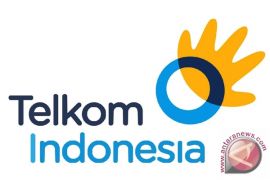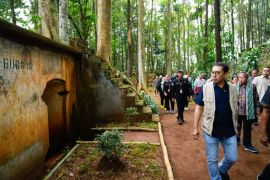As part of its efforts to develop the country`s state companies, the ministry will conduct an overall evaluation on their boards of directors and commissioners, particularly those so far deemed to have bad performance.
"We will evaluate the board of directors of each SOE and find a solution to improve their performance," Dahlan Iskan, minister of state enterprises, said at the SOE ministry here on Friday.
Dahlan, who was recently named SOE minister replacing ailing Mustafa Abubakar, said that in the framework of its right sizing program for state firms, his ministry would reduce the number of 17 state companies which up to now were still losing business.
"We will do our best so that next year there would be no longer state firms which experienced negative growth," Dahlan, a media professional, who has successfully developed the Jawa Pos media network, said.
He said that he needed to know why a state firm could not develop and in this case its board of directors and commissioners should be comprehensively evaluated.
The SOE minister said that if a state firm was later known to have faced difficulties in gaining progress because its management was unable to work and had no capability to manage the company, then its management would soon be revamped.
As one of the national economic pillars along with the private sector and cooperatives, state enterprises should play a bigger role in national economic activities. After all, Indonesia has recently been rated as an investment grade country.
"State firms should be able to make use of the increased rating to an investment grade nation in order to help boost national economic growth," Dahlan said.
International rating agency Fitch raised Indonesia`s debt rating from "BB" to "BBB-" on Thursday categorizing the country as investment grade which is good for long-term investment.
State firms should not be lagged behind and ignore the opportunities. They have to do all of their business plans immediately, including their divestment plans.
There are three state companies which failed to go public this year and are expected to carry out the initial public offering (IPO) in 2012. Besides, three others are planning to go public in the same year next year.
"Next year (2012) there must be minimally three companies that will go public," he said at his office. He said it was not impossible that subsidiaries of state-owned companies would also do it in addition to the three companies.
Dahlan said that in principle his office would encourage state-owned companies to go public as a way of creating transparency and accountability and improving the companies` financial performance. He also encouraged them to issue bonds. "In principle I will only follow. Whoever is ready go ahead," he said.
The chairman of the Association of Indonesian Issuers (AEI), Erlangga Hartarto, said earlier that the state enterprises ministry had to make an implementation policy for the state-owned companies` IPO to assure it would go smoothly and not hurt the companies concerned.
Dahlan declined to tell the names of the three companies that would conduct an initial public offering next year but he hinted that one of them is a cement producer. He said state-owned companies` subsidiaries that are ready and potential to go public would be given a priority.
The state-owned companies would use the financial statement of the end of December 2011 for the IPO and therefore it would only be realized by the end of the first semester at the soonest.
The state enterprises ministry earlier recorded that three companies have been ready to go public namely PT Semen Baturaja, PT Waskita Karya and state-owned plantation firm PTPN III while the subsidiaries that have been ready are PT Krakatau Wajatama and PT Pertamina Hulu Energi.
In the meantime, the state-owned enterprise ministry also assured that the three SOE early expected to go public in 2011 would delay their plan to 2012 because they had not yet gained approvals from the House of Representatives (DPR).
The three companies are textile manufacturer PT Primissima, papermaker PT Kertas Padalarang and asphalt producer PT Sarana Karya.
Former minister of sate-owned enterprises Mustafa Abubakar said last August that the government had planned to divest its shares in the three state-owned firms by end of 2011.
"We hope that the divestment of shares in the three state enterprises can be completed this year," Mustafa said last August.
The minister added that the government wanted to divest its shares in Primissima to private investors, but expected other state enterprises to acquire Kertas Padalarang and Sarana Karya. The government currently owns a 52.79 percent stake in Primissima, a 48.4 percent stake in Kertas Padalarang and 100 percent of Sarana Karya.
However, the SOE ministry has assured that the plans of the three state firms to go public this year could not be implemented because the DPR had not yet approved it.
"The privatization programs of Primissima, Kertas Padalarang, and Sarana Karya cannot be done this year (2011) and possibly will be carried out next year (2012)," Deputy Minister for State-owned Enterprises Mahmuddin Yasin told a hearing with Commission VI on trade and investment, this week.
Besides on the privatization program, state-owned enterprises are also expected to take part in the government`s Masterplan on Acceleration and Expansion of Indonesia?s Economic Development (MP3EI).
Nine SOEs on the infrastructure sector with a combined capital expenditure of Rp46.522 trillion will take part in the projects. "Those projects are scattered in all of Indonesia`s economic corridors (except toll roads in Java and Bali)," Dahlan told a hearing with the House of Representatives Monday night. The MP3EI projects to be implemented by the state-owned companies included airports , seaports , ferry fleet capacity expansion, railways and toll roads.
"Altogether, the capital expenditures and operational expenditures for the MP3EI projects in 2012 will total Rp49.61 trillion," the minister said.
For this year, the state-owned enterprises ministry had allocated a total of Rp192.01 trillion for infrastructure projects while its entire budget for MP3EI projects for the period 2011-2014 was set at Rp836 trillion.(*)
Reporter: Andi Abdussalam
Editor: Aditia Maruli Radja
Copyright © ANTARA 2011







